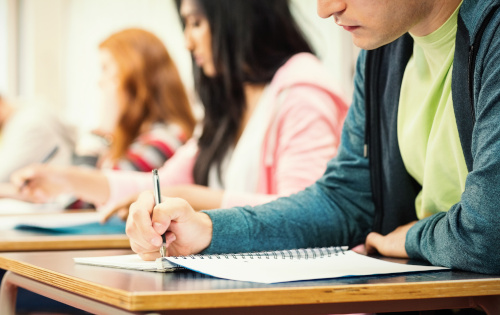PISA, the OECD’s Programme for International Student Assessment, measures 15-year-olds’ ability to use their reading, mathematics, and science knowledge and skills to meet real-life challenges. Its league table of results suggests which of the 90 participating countries have been able to improve their education system and student performance.
But when we look back at people throughout history who have made a significant impact on society, it’s not their school reading, math, or science test results that measure their success.
One well known winner of the Nobel Prize for physics was told by his teacher at school that he would ‘never amount to anything.’ For Albert Einstein, it was his fascination with the invisible forces that deflected a compass needle and a book on science that ignited his lifelong fascination with the world around him. But how do we strike a balance between the core curriculum and the invaluable importance of developing a child’s hard and soft skills, their curiosity, and their creativity?
The OECD has started working to refine its assessments to measure competences beyond the core literacies of reading, mathematics, and science. Future PISA tests will include measures of creative thinking (PISA 2022). The OECD’s ‘Survey of Social and Emotional Skills’ report states that education is no longer just about academic success but rather helping students develop the social and emotional skills necessary to navigate the adult world with empathy, confidence, and a strong character. It’s also about respecting other cultures and religions–something that can be lacking in our schools and wider society.
But does this go far enough?
Renowned psychologist and child development theorist Jean Piaget made a very emotive statement when he said, “Our real problem is–what is the goal of education? Are we forming children that are only capable of learning what is already known? Or should we try developing creative and innovative minds, capable of discovery from the preschool age on, throughout life?” Every year, the K-12 curriculum is amended and refined while assessments dig deeper into each child’s absorption of the facts that have been delivered. But what Piaget would encourage is that education moves towards opening children’s enquiring minds to explore, evaluate, and discover the world they live in.
I’m not suggesting that school children shouldn’t learn the core basic skills, but wouldn’t their academic, social, and emotional skills be stronger and better entwined if they could learn outside the restraints and restrictions of the modern classroom? This is something most teachers would agree with, but don’t have the power to change government and societal expectations.
Building skills beyond academic success
I wasn’t a great student at school. The classes didn’t excite or interest me. I couldn’t picture how the things we were learning were going to impact my life. It was these constraints of today’s education system that ignited my interest in THINK Global School’s (TGS) way of learning. I was lucky enough that my parents were the first to hear about the school and saw the potential; it clearly appeared to be a better, holistic, and more interesting way of learning that they hoped would inspire me.
The very essence of THINK Global School’s programme aims to immerse students in social and emotional skills: perseverance, empathy, mindfulness, courage, and leadership are all central to this platform for learning.
During my time at TGS, my ‘class’ lived in four different countries each year, making unforgettable connections between our education and the world around us. My time in Costa Rica, Botswana, India, Japan, Spain, Greece, China, and Oman gave me a unique and broader perspective on life and learning. Taking Japan as one example, that module was on the history of Hiroshima and the country’s aquaculture and sustainability today.
As students, we work with relative autonomy as well as with our peers. To a certain extent, we are in charge of our own learning through a combination of real-world exploration, skills, mastery, and project-based learning. My exposure to learning experiences outside the restrictions of a classroom has made me mature a lot faster, which in turn has been pivotal in the way I communicate and engage with people and think things through.
Broadening horizons
While the life-long benefits are hard to quantify, the people you meet and the different cultures broaden all your learning experiences. Instead of a state-defined education system, we had the opportunity at TGS to delve into project-based learning in real-life environments, which encouraged everyone to apply their skills effectively and become adults very quickly.
At first glance, THINK Global School may sound out of reach for some families, but due to its sliding-scale tuition, it is an opportunity available to every student in the world who aspires to create change. It has certainly given me a lot of depth as a member of society.
While I have a way to go before becoming the next Einstein or Piaget, this learning experience has given me the platform I needed to break away from any constraints and has injected motivation and happiness in my life. I’ve not only learned key academic skills, but I’ve also developed an inspiration to do more with my life.
Conclusion
Considering the OECD’s recent move to measure its competences beyond the core literacies of reading, mathematics, and science, I hope we are seeing a societal move towards broadening our education system. Helping students develop key life and social skills including autonomy, cultural awareness, and independence goes beyond academic skills and better prepares them for life beyond school. The development of these skills is important not only for the wellbeing of individuals, but also for wider communities and society. I hope that more governments start to re-evaluate their education system and allow students to broaden their learning experiences.
- Redesigning the educational model after COVID - May 13, 2024
- Beyond the visible: Recognizing and accommodating invisible disabilities - May 13, 2024
- How school leaders can manage and control emotions - May 10, 2024

